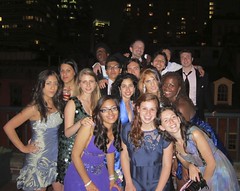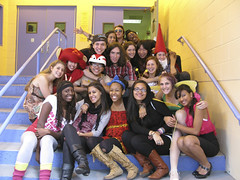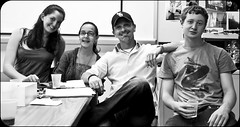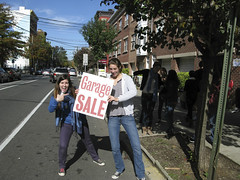Thesis: In his novel, The Trial, Kafka utilizes the character of Josef K. to illustrate the consequences that come as a result of following Kierkegaard’s crowd, ultimately revealing Sartre’s belief that a person who follows the crowd lives in bad faith, and in the end, sacrifices his true self.
Paragraph 1:
As the novel begins, Josef K. stands out as a prime member of society, effectively functioning in the crowd as the top financial advisor of his bank.
–He follows his daily schedule
–“showed how important K. had become to the bank, and how valuable his friendship, or at least his neutrality, must seem to the bank’s second-highest officer” (36)
–Kierkegaard: Comfort of the crowd
–“truth…is not always palatable as falsehoof which always is prepared delicately to give delight” (98)
Paragraph 2:
K.’s initial refusal to accept the legitimacy of his trial represents his temporary departure from the crowd Kierkegaard discusses.
–Does not follow the rules
–Stands up to the crowd
–“they are only proceedings if I recognize them as such” (45)
–“I really have nothing to fear from this account book” (46)
–“What has happened to me is…of no particular consequence since I don’t take it very seriously” (46)
–Kierkegaard: Dangers of the crowd
Paragraph 3:
The temptation of the crowd is revealed, however, when K. is unable to remain true to how he would like to act, and instead resorts to the socially accepted and expected way of approaching a trial.
–Begins to try to work throught the system
–“He had resolved at once to go on Sunday, it was clearly necessary…” (36)
–“When the expected notification had not arrived by Saturday evening, he took it as an implicit summons to appear again in the same building at the same time” (54)
–“And now do you have a suggestion as to what I should do next?” (95)
–Sartre: Cannot remain in good faith
–Kierkegaard: He is in bad faith because he follows the crowd
–“No witness for the truth dare become engaged with the crowd” (That Individual 97)
–“for it often happens that a man thinks the crowd is the untruth, but when it—the crowd—acceptis his opinion en masse, everything is all right again” (99)
Paragraph 4:
The consequences of this bad faith are revealed as the novel progresses and K. is unable to progress with his trial.
–Despite the fact that he fires his lawyer, he still views the crowd as the truth
–Following the crowd and being in bad faith limits his choices
–He can only see one route of escape
–Priest’s storyàcompare to pg 50
–“Group action is entirely ineffective” (175)
–“A crowd, in its very concept is the untruth, by reason of the fact that it renders the individual completely impenitent and irresponsible, or at least weakens his sense of responsibility by reducing it to a fraction” (That Individual 95)
–“The crowd, regarded as a judge over eithical and religious matters, is untruth” (That Individual 96)
–“the ‘crowd’, when it is treated as an authority and its judgement regarded as the final judgement, is detested by the witness for the truth more heartily than a maiden of good morals the detests the public dance-floor” (97)
–“the communicator of the truth can only be a single individual…and again the communication of it can only be addressed to the individual” (98) àK. is trying to convince the crowd not the individuals
Paragraph 5:
K.’s deat at the end of the novel fully reveals Sartre’s assertion that individuals who follow Kierkegaard’s crowd sacrifice themselves to fit the system.
–K. is killed because he followed the rules
–He dies like a dogàlike an animal, not a consious being—or—following directions at all times
–Kierkegaard: “when it is a question of a single individual man, then is the time to give expression to the truth” (That Individual 96)




















